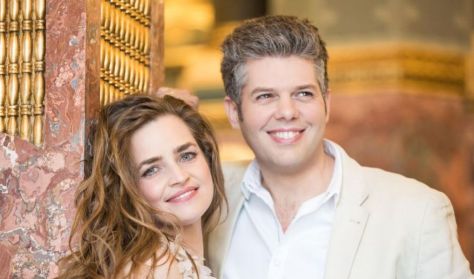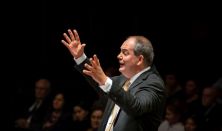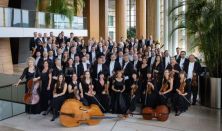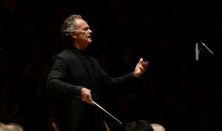SINFONIA CONCERTANTE
Program:
WOLFGANG AMADEUS MOZART: Idomeneo – overture, K. 366
JOSEPH HAYDN: Symphony No. 70 in D major, Hob. I:70
WOLFGANG AMADEUS MOZART: Sinfonia concertante in E-flat major, K. 364
***
MICHAEL HAYDN: Symphony No. 26 in E-flat major, MH 340
WOLFGANG AMADEUS MOZART: Symphony No. 39 in E-flat major, K. 543
Barnabás Kelemen violin
Katalin Kokas viola
Hungarian National Philharmonic Orchestra
Conductor: György Vashegyi
The Viennese Classical repertoire presented in the Ferencsik season ticket concerts is something of a musical ‘diet menu’, as the Hungarian National Philharmonic Orchestra plays these works by Haydn and Mozart with a slimmer set of instrumentalists than the usual symphonic forces, which results in more agile playing and a more transparent sound. Each of the four concerts ends with one of Mozart’s late symphonies. The conductor for the concert opening the series, György Vashegyi, is a pivotal figure in the development of historically informed music performance in Hungary, while the two soloists, Barnabás Kelemen and Katalin Kokas, are celebrated both as artists and personalities in the world of Hungarian string players.
The first concert in the subscription not only gives Joseph Haydn the chance to speak to us, it also opens the floor to the composer’s brother, Michael, who was five years his junior and likewise considered an excellent composer. Like Mozart, he too served in Salzburg, and Mozart held him in high esteem and considered certain works of his to be models for his own. One such precursor was the first movement of the Michael Haydn symphony being performed on this evening, foreshadowing in the same key the opening movement of Mozart’s late ‘Great’ Symphony in E-flat Major. Also in E-flat major is one of the gems of Mozart’s oeuvre, the breathtakingly beautiful Sinfonia concertante, which employs a violin and a viola as solo instruments. The programme kicks off with two other pieces: the overture to Mozart’s opera Idomeneo and Haydn’s Symphony No. 70 in D major, which was premiered in Eszterháza in December 1779. Over the past three decades, György Vashegyi has accumulated enormous experience in conducting the orchestral, oratorical and operatic works of Haydn and Mozart, and the incredibly diverse activities of Barnabás Kelemen and Katalin Kokas as both soloists and chamber musicians cover almost all periods of the music literature, from the Baroque to the 21st century.














